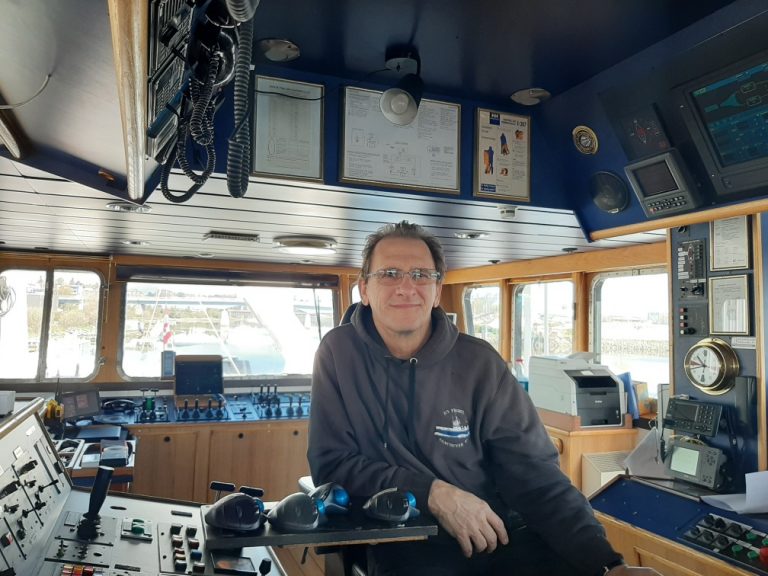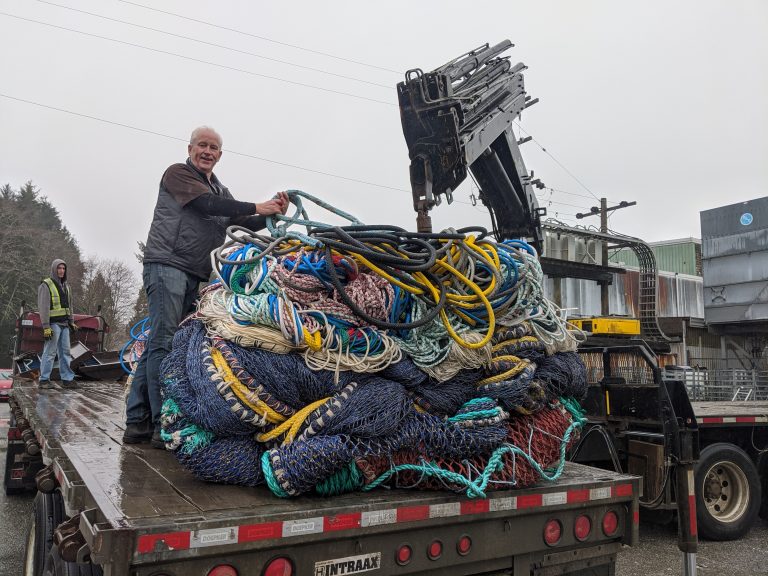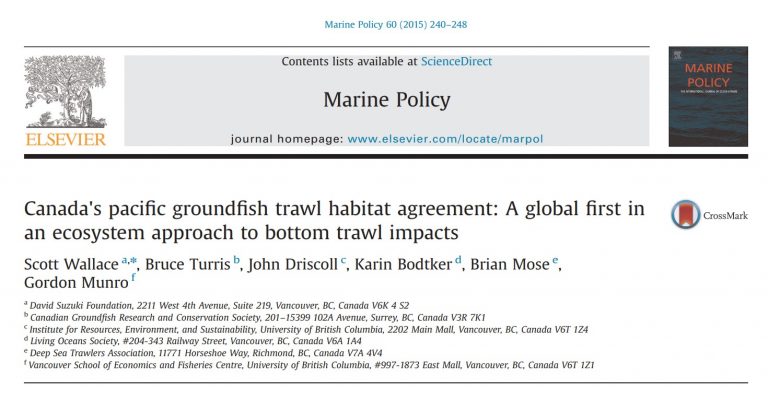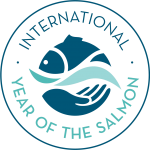A Partnership with Industry makes Major Contributions to the Success of the 2020 Gulf of Alaska Expedition
Camille Jasinski, IYS Communications Coordinator
For the last 100 years, scientists have been trying to find the missing pieces that could help to explain the mechanisms which cause trends in salmon abundance throughout the Northern Hemisphere. In 2019, Richard Beamish, emeritus scientist at the Pacific Biological Station in Nanaimo, and Brian Riddell, science advisory for the Pacific Salmon Foundation set out to return to the high seas. They solicited funding from government, NGO’s, the private sector, and individuals to successfully conduct the first international research expedition in decades to study the winter ecology of Pacific salmon in the high seas. This year they have added partners from both the Canadian and U.S. commercial fishing industries that included both companies and individual fishers. The B.C salmon farming industry contributed to both expeditions through the B.C. Salmon Farming Association. The input from the commercial fishing sector went beyond financial contributions, with individuals bringing knowledge and expertise to enhance the science.
In response to the Russian research vessel Professor Kaganovskiy – the research trawler used in the 2019 expedition – being unavailable for 2020, the Canadian fishing industry responded by making the fishing vessel Pacific Legacy available to charter. On an unbelievably tight timeline, the working factory trawler which completed a commercial delivery of groundfish just 10 days prior to departure of the expedition on March 11, was turned into a functional research vessel. This process included converting the fish processing factory into functioning wet and dry research labs for the scientists. This accomplishment is directly attributed to the two owner/operators of the Pacific Legacy – Captain’s Brian Mose and John Roach, who have had unique careers effectively bridging industry and science in the fishing industry.

Brian and John have several decades of experience operating commercial vessels under charter to conduct resource assessment surveys for governments in both Canada and the US, from the Beaufort Sea to southern California. They both bring extensive knowledge of the fishing gear and fish species that improve scientific methodology. In preparation for the 2020 Gulf of Alaska Expedition, they worked with the International Year of the Salmon (IYS) and scientists from Canada, the Russian Federation, and the United States to design and build a custom trawl net that is comparable to existing high seas research nets used for high seas work in Russia and the USA. They also tuned the net for use specifically on the Pacific Legacy, and to the unique requirements for towing effectively at the surface. Their combined years of experience and intimate knowledge of fish, the vessel, and the gear will ensure that the immense potential for learning about various species of fish and the environment is being fulfilled during this expedition.

Because of their passion, knowledge, and dedication, Brian Mose and John Roach have built strong credibility among industry and science. Brian Mose has published a number of peer reviewed papers along with his colleagues and has a long history of participating in groundfish peer review processes and working groups. He also collaborates with government and NGO’s to improve the sustainability of groundfish harvesting, using scientific research. John Roach is likely one of the most experienced commercial fishermen engaged in scientific salmon surface trawl survey work in the Pacific Northwest and has completed more than 60 salmon surveys over three decades. Both Brian Mose and John Roach have been the Captain of dozens of research cruises. Their dynamic experience and collaboration with industry demonstrates the possibilities of future generations working to ensure the resilience of salmon and people in a changing world.

Other Published Work:
Koolman, John, B. Mose, R.D. Stanley, and D. Trager. Developing an Integrated Commercial Groundfish Strategy for British Columbia; Insights Gained about Participatory Management. In Biology, Assessment, and Management of North Pacific Rockfishes, Alaska Sea Grant College Program, AK-SG-07-01, 2007.
Stanley, R.D., R. Keiser, K. Cooke, A.M. Surry, and B. Mose. 2000. Estimation of a widow rockfish (Sebastes brevispinis) shoal off British Columbia, Canada as a joint exercise between stock assessment staff and the fishing industry. ICES Journal of Marine Science, 57: 1035-1049.
Stanley, R.D., A.M. Cornthwaite, R. Kieser, K. Cooke, G.D. Workman, and B. Mose. 1999. An acoustic biomass survey of the Triangle Island Widow rockfish (Sebastes entomelas) aggregation by Fisheries and Oceans, Canada and the Canadian Groundfish Research and Conservation Society, January 16 – February 7, 1999. Can. Tech. Rep. Fish. Aquat. Sci. 2262. 51p.

